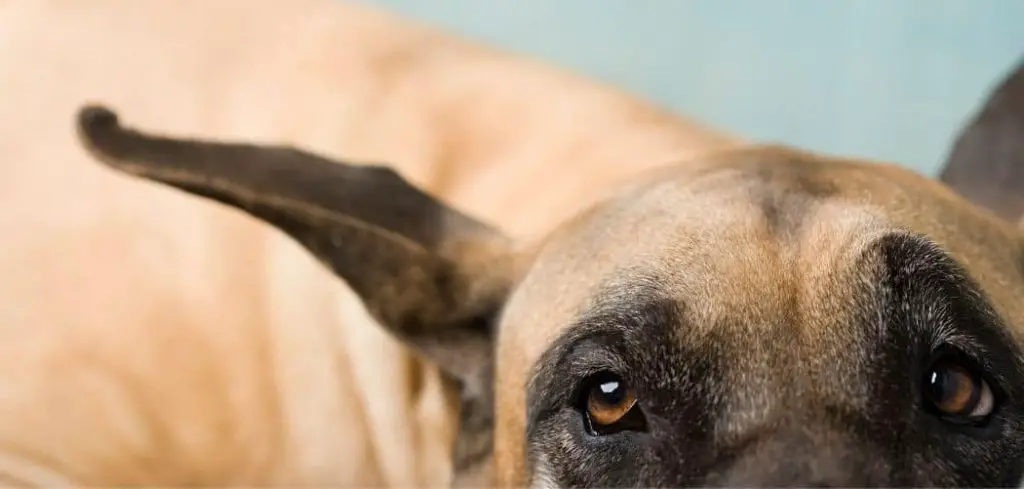Dogs chewing their paws excessively can be concerning for any dog owner. While occasional licking is normal, persistent chewing is a clear signal that something needs attention.
Understanding the underlying cause helps you provide the right treatment and prevent further complications.
We outline the common causes of a dog excessively chewing its paws, what you can do at home, and when to seek veterinary help.
Dog Excessively Chewing Paws — Why It Happens
A dog excessively chewing its paws usually indicates discomfort or irritation. Common causes include allergies (to food, pollen, or environmental triggers), skin infections, or external parasites like fleas or mites. Pain from an injury, foreign object (like a thorn), or arthritis can also lead to paw chewing as the dog tries to self-soothe.
In some cases, stress, boredom, or anxiety cause repetitive behaviors like constant licking and chewing.

Dog Excessively Chewing Paws: Common Causes
Allergies
Allergies are one of the most common reasons dogs chew their paws.
Environmental allergens such as pollen, dust mites, or mold can trigger itchiness, while food allergies may also cause skin irritation.
Dogs often chew to alleviate the itching caused by allergic reactions. You might notice redness, swelling, or hair loss around the paws.
Allergies are serious because untreated irritation can lead to secondary infections.
Read more: Dog Chewing Around Anus (Why It Happens and What to Do)
Fleas and Parasites
Parasites like fleas, ticks, or mites can make a dog’s paws extremely uncomfortable. Bites and infestations lead to itching, redness, and inflammation, prompting your dog to chew or lick excessively.
You may notice visible fleas, flea dirt, or small scabs on the paws. Persistent parasite infestations can cause severe skin infections and discomfort if not treated.
Skin Infections
Bacterial or fungal infections in the paws often result in excessive chewing. These infections may occur after minor injuries, constant moisture, or allergic reactions.
Signs include redness, swelling, foul odor, or pus-filled sores on the paws. Infections are serious because they can spread and worsen without prompt veterinary care.
Injuries or Foreign Objects
Cuts, splinters, or lodged debris between paw pads can trigger chewing behavior. Dogs instinctively chew to relieve discomfort or remove the foreign object.
Limping, licking, or visible swelling may accompany the behavior. Untreated injuries can worsen, leading to infections and difficulty walking.
Anxiety or Stress
Behavioral issues, including separation anxiety or boredom, can cause dogs to chew their paws as a coping mechanism.
Dogs might chew during stressful situations or when left alone for long periods. Over time, this can lead to self-inflicted injuries or chronic irritation.
Addressing anxiety is important to prevent repeated paw damage.
Dry Skin or Environmental Factors
Dry air, seasonal changes, or frequent exposure to hot pavement and chemicals can dry out paw pads, making them itchy and sensitive.
Dogs may chew to soothe the discomfort. Cracked, red, or flaky paw pads are common signs. Chronic dryness can increase susceptibility to infections or further irritation.
What to Do If Your Dog Is Excessively Chewing Their Paws
If your dog is chewing its paws excessively, there are steps you can take at home to provide relief.
Start by examining the paws for injuries, redness, swelling, or foreign objects. Gently clean the area with mild soap and lukewarm water to prevent infections.
Consider applying vet-approved topical ointments or moisturizers to soothe irritated paws.
For dogs with allergies, limiting exposure to known allergens or changing their diet can reduce symptoms. Interactive toys, mental stimulation, and regular exercise may help dogs with anxiety or boredom-related chewing.
Always monitor the behavior closely and prevent your dog from worsening paw damage by using protective booties or an Elizabethan collar if needed.
When to Call or Visit Your Vet
Persistent or worsening paw chewing warrants a veterinary visit. Seek help if you notice severe redness, swelling, bleeding, pus, foul odor, or limping.
Recurrent chewing that does not improve with home care may indicate allergies, infections, or parasites requiring professional treatment.
Veterinarians can diagnose underlying causes, prescribe appropriate medications, and recommend allergy testing or behavioral interventions.
Prompt intervention prevents complications such as infections, chronic pain, or self-inflicted injuries.
Read more: Dog Licking Paws Excessively (What it means and what to do)
Key Takeaway
Excessive paw chewing in dogs is often more than just a habit. It can signal allergies, infections, injuries, or behavioral stress.
Early observation and intervention are key to preventing complications and keeping your dog healthy and comfortable.
Regular paw inspections, appropriate home care, and timely veterinary visits help ensure your dog’s paws remain healthy and pain-free.
By addressing the root cause, you can stop excessive chewing and improve your dog’s quality of life.
